
Why is skincare important for daily life?
Skin care plays an important role in your overall health and appearance. After all, your skin is the largest organ of your body. Skincare primarily focuses on the delicate areas on your face, neck, and chest, with regimens focused on cleansing, moisturizing, and treating specific conditions.
If you want to dive deeper into why skin care is important and how you can make it a priority in your life, we’re here to help.
In this article, we’ll break down the importance of skincare and provide helpful tips on how to care for your skin, from wearing sunscreen to prevent skin cancer to how to find quality skin care products
Follow these basic skincare routine steps to have healthy and glowing skin:
Step1: Cleansing
Cleansing is the process of using a cleanser to remove accumulated dirt, oil, bacteria, and pollutants from the skin’s surface. But maintaining balanced, healthy skin requires more than just washing your face; good cleansing also involves utilizing the right products and methods.
How to Use Cleanser:
- Start with Clean Hands: Wash your hands thoroughly before touching your face to prevent transferring dirt and bacteria.
- Pre-Cleanse: If you’re wearing makeup or sunscreen, use a micellar water or oil-based cleanser to remove makeup. After that use your regular cleanser.
- Apply Cleanser: Dispense a small amount of cleanser onto your fingertips and gently massage it onto damp skin using circular motions. Focus on areas prone to congestion, such as the T-zone.
- Rinse Thoroughly: Use lukewarm water to rinse off the cleanser, making sure to remove all traces of the product. Avoid hot water, as it can strip the skin of its natural oils.
- Pat Dry: Gently pat your face dry with a clean towel. Avoid rubbing, as this can cause irritation, especially if you have sensitive skin.
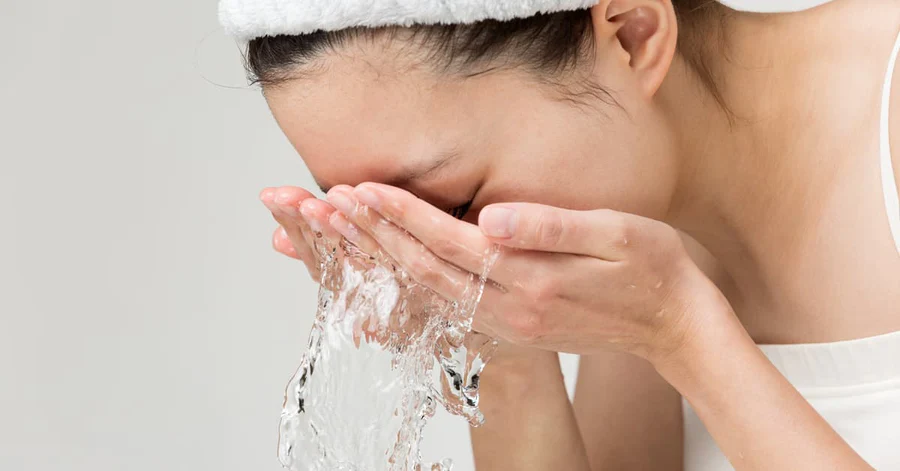
Step2: Toner
Toner is a skincare product that often gets overlooked, but its benefits are too good to ignore. From balancing the skin’s pH to refining pores and enhancing hydration, toners play a crucial role in any skincare routine.
How to Use Toner:
- Cleanse Your Skin: Start by cleansing your face with a gentle cleanser to remove dirt, oil, and makeup.
- Dispense Toner: Pour a small amount of toner onto a cotton pad or into the palm of your hand.
- Apply Toner: Gently sweep the toner across your face and neck, avoiding the delicate eye area. Alternatively, you can pat the toner directly onto your skin using your fingertips.
- Follow with moisturizer: Allow the toner to absorb fully into your skin before applying any serums, treatments, or moisturizers.
- Use Twice Daily: For optimal results, use toner morning and night as part of your skincare routine.
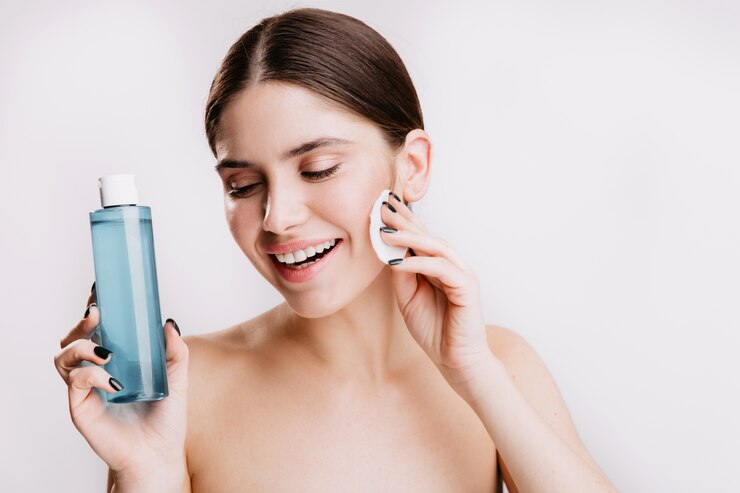
Step3: Serum
Serums are lightweight, fast-absorbing skincare products typically formulated with high concentrations of active ingredients such as vitamins, antioxidants, peptides, and hyaluronic acid.
How to Use Serums:
- Cleanse your face thoroughly using a gentle cleanser to remove any dirt, oil, and makeup residue.
- Pat your skin dry with a clean towel, leaving it slightly damp to enhance serum absorption.
- Dispense a small amount of serum onto your fingertips and gently massage it onto your face and neck using upward, circular motions.
- Allow the serum to absorb fully into the skin before applying any additional skincare products.
- Follow up with a moisturizer to lock in hydration and seal in the benefits of the serum.
- Apply sunscreen during the day to protect your skin from harmful UV rays, especially when using serums containing ingredients like retinol or vitamin C.
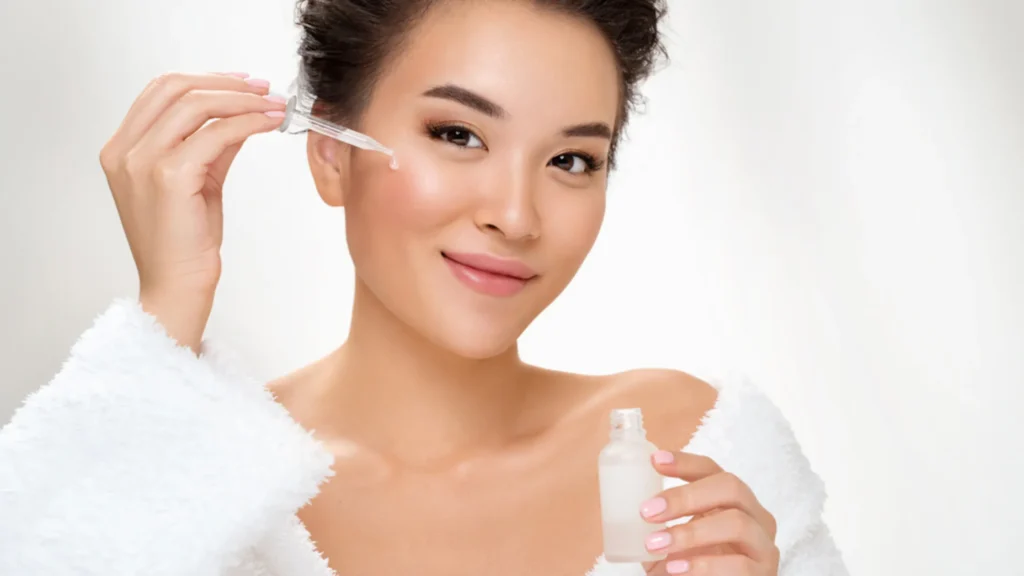
Step4: Moisturiser
Moisturizers are skincare products designed to hydrate, nourish, and protect the skin by replenishing its natural moisture barrier. Moisturizers help restore and maintain the skin’s moisture balance, preventing dryness, flakiness, and dehydration. Regular use of moisturizers can help soften rough patches, smooth fine lines and wrinkles, and promote a more even skin texture.
How to Use Moisturizers:
- Cleanse your face with a gentle cleanser to remove dirt, oil, and impurities, then pat your skin dry with a clean towel.
- Dispense a pea-sized amount of moisturizer onto your fingertips and gently massage it onto your face and neck using upward, circular motions.
- Pay special attention to areas prone to dryness, such as the cheeks, forehead, and around the eyes.
- Allow the moisturizer to absorb fully into the skin before applying any makeup or additional skincare products.
- Use moisturizer twice daily, in the morning and evening, as the final step in your skincare routine to lock in hydration and protect the skin’s barrier.
- Adjust the amount of moisturizer based on your skin’s needs and the climate or season. You may need more or less product depending on factors like humidity levels and temperature.
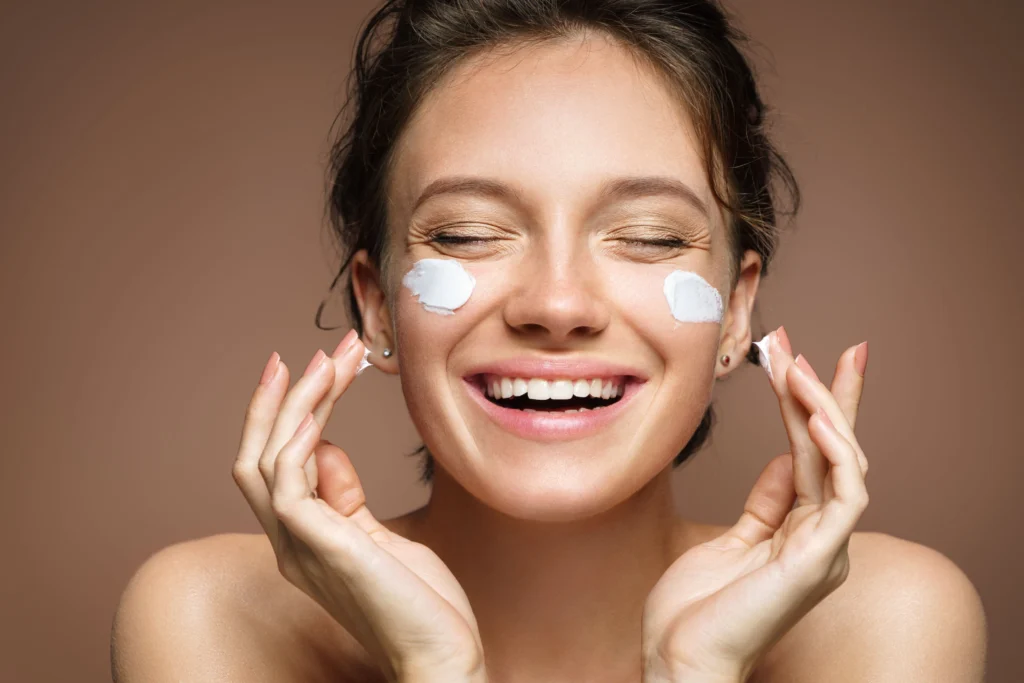
Step5: Sunscreen
Sunscreen is not just a summertime essential. It’s a year-round necessity for maintaining healthy, radiant skin and protecting against the harmful effects of UV radiation. Sunscreen helps protect the skin from sunburn by blocking or absorbing. UV rays can damage skin cells and cause inflammation.
How to use sunscreen:
- Apply sunscreen generously to all exposed skin areas, including the face, neck, ears, arms, legs, and any other exposed areas.
- Use enough sunscreen to cover the entire area. Evenly, apply at least one ounce (about a shot glass full) for full-body coverage.
- Apply sunscreen at least 15 minutes before sun exposure. Allow the product to absorb into the skin and form a protective barrier.
- Reapply sunscreen every two hours, or immediately after swimming, sweating, or towel drying, even on cloudy or overcast days.
- Use additional sun protection measures, such as wearing protective clothing, seeking shade, and avoiding peak sun hours (10 a.m. to 4 p.m.), in conjunction with sunscreen for comprehensive sun protection.
- Don’t forget about often overlooked areas such as the tops of your feet, the back of your neck, and ears, when applying sunscreen.
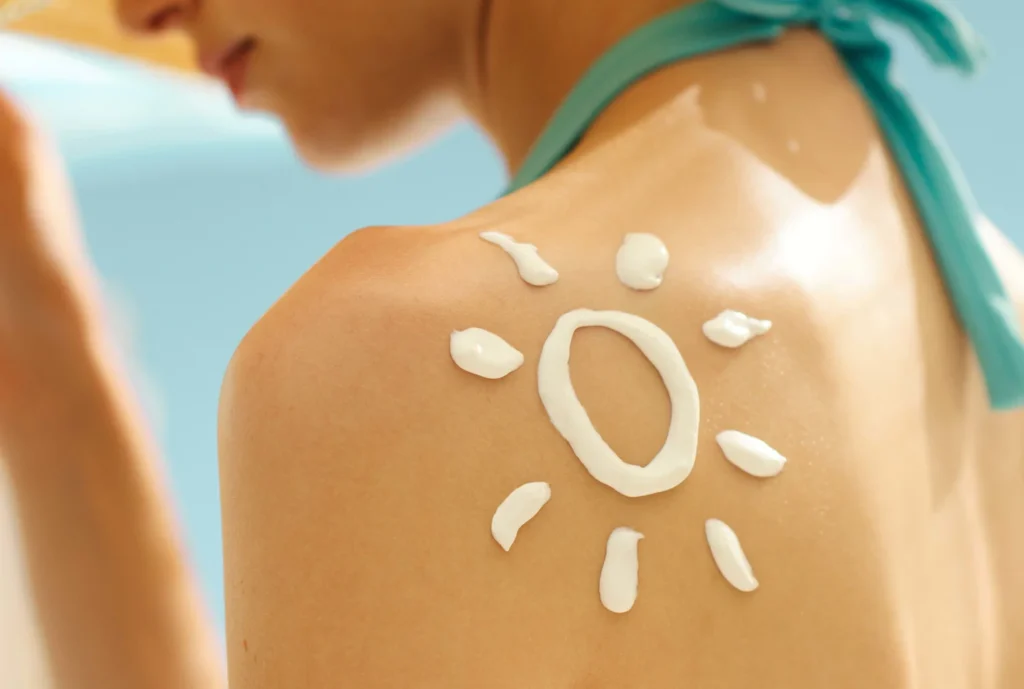
Conclusion
A basic skincare routine is essential for achieving healthy and glowing skin. Consistent practices such as cleansing, moisturizing, and protecting the skin from sun damage through sunscreen application form the foundation of good skincare. Additionally, incorporating gentle exfoliation and nourishing treatments can further enhance skin health and radiance. By prioritizing these simple yet effective steps, individuals can promote skin vitality, address common concerns, and maintain a radiant complexion over time.
